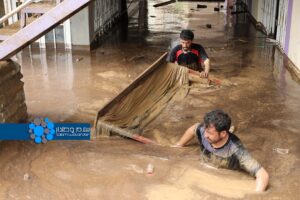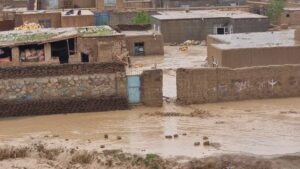KABUL (SW) – The Islamic Emirate authorities have been urged at the UNSC to rescind the bans on women and girls to enable the United Nations to continue its full support to the people of Afghanistan.
In her briefing, Roza Otunbayeva, the Secretary-General’s Special Representative for Afghanistan, said despite these bans, the international community can do more to ensure the future stability of the Afghan economy in a way that directly improves the lives of Afghans. “This is particularly important in light of a likely significant decline in funding for the humanitarian response this year”, she said.
She said the UNAMA has established reliable, effective working channels of communication with the de facto authorities, and have also identified greater opportunities for cooperation that could build mutual understanding but also improve the lives of the Afghan people.
“We could do much more, however, if the Taliban rescinded its punishing restrictions on its female population,” she said.
She said an unfortunate effect of these bans is that they obscure some of the other more positive achievements that have taken place under the de facto authorities. “One of these is the growing evidence that the Taliban’s ban on opium cultivation, announced in April last year, has been effectively enforced in many parts of the country. According to initial media reports, cultivation of opium has significantly decreased,” she said.
She also welcomed reduction of high-level corruption. “But the general trend is of centralization of power by an unaccountable central authority. One of the key issues raised at the meeting of Special Envoys convened by the Secretary-General in Doha in May was the need for inclusive governance. There is a widespread concern that a lack of inclusivity and participatory governance will lead to instability.” she said.
On counter-terrorism, she said the picture is mixed. “The de facto authorities are making concerted efforts to counter ISIL-KP. Despite this, attacks targeting both the de facto authorities and the civilian population have taken place,” she said.
Most recently in Badakhshan on 6 and 8 June, two attacks targeting the de facto authorities killed and wounded at least 63 people, including 14 killed, 49 wounded, the majority of whom were civilians. Both attacks were claimed by ISIL-KP. Indiscriminate attacks by ISIL-KP, such as the use of Improvised Explosive Devices in populated areas, and attacks deliberately targeting civilians, constitute serious violations of international law and must cease.
She expressed concerns by Afghanistan’s vulnerability to climate change. “Years of drought have compounded the effects of conflict and poverty. Climate change is fostering population displacements inside Afghanistan that could be destabilizing.” Overall, she said the need to mitigate the effects of climate change requires a more specific dialogue between the de facto authorities and the international community.
ENDS






